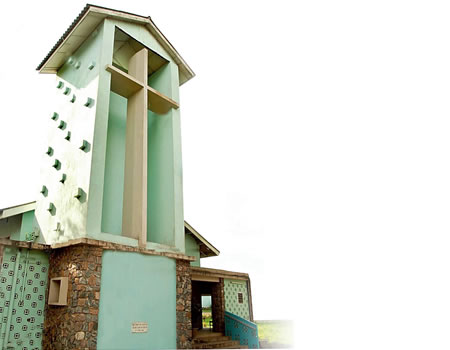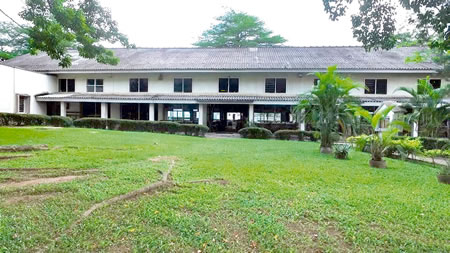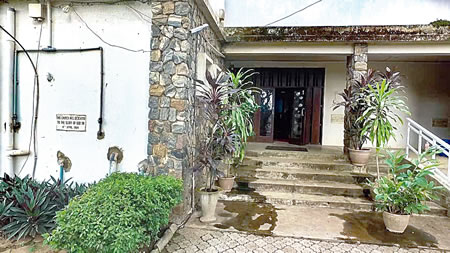When the All Saints’ Church, Jericho, Ibadan, Oyo State, was established 60 years ago, it started as an English-speaking church founded by three denominations: Methodist, Anglican and the Presbyterian. YEJIDE GBENGA-OGUNDARE reports that the church is still ecumenical in nature as it maintains the doctrine of the three denominations that founded it.
The All Saints’ Church, Jericho, Ibadan, Oyo State, is one with a rich history and heritage; it was established for the English-speaking populace of the residential areas of Jericho Reservation, Links Reservation, New Reservation and Moor Plantation who then were mainly expatriates. The church held services in the School of Forestry until the opening of the church building in 1963.
Services at this period were held only in the evenings as the building was only available in the evenings and Sunday schools held in the morning until the choir started featuring at morning service in 1971.
The church originated from an informal non-denominational Sunday School in 1952, meeting at first in a room on the old university site, later in a private house and finally in the School of Forestry, from where the church started in 1959.
Speaking on the history of the church, Venerable Godwin Daramola, a former archdeacon of the Anglican Church in Ibadan, stated that in 1956, evening services in English were started in the chapel of the Letmauck Barracks, Eleyele by the chaplain attached to the 2nd and 5th Battalions of the Queen’s Nigeria Regiment to reach the civilian expatriate members of the community who had not attached themselves to any of the local churches.
“A small congregation was built up but when the army was no longer able to post a chaplain to Ibadan, this soon disintegrated. During the same period, a small group of Christians were meeting in private homes for prayer and bible study These groups included those responsible for the running of the Sunday School and they had discussed the need for a church in the district which would bring together Europeans and Nigerians who used English as their language of every day speech,” he said.
Closure of borders in S/West suspicious — Gani Adams
What stands the church out is that it was founded by three Christian denominations; Methodist, Anglican and Presbyterian; it is presided over by priests from the three denominations and it embraces the doctrines of the three denominations. And 60 years down the lane, the church retains this mode of service, making it one of the few ecumenical churches in existence.
Very Reverend Adeshola Kuyebi, the Minister of the church, said ecumenism and Methodism were a structure and standard that worked in the early years of Methodism through its progenitor, The Reverend John Benjamin Wesley.
“The standard is still in place today which has made it possible for the church (Methodist) to partner with others in the church worldview. Ecumenism acknowledges division in the Christianchurch and seeks a restoration of unity based on the principle of the oneness of the people of God. But ecumenism has meant different things to different churches; the orthodox churches tend to focus on a recovery of the apostolic tradition as a basis for coming together.
“Ecumenical is a relational, dynamic concept which extends beyond the fellowship of Christians andchurches within the human community in whole creation. It should be noted that God does not give up on the vision of Shalom proclaimed by prophets and embodied in Jesus Christ. He continues to search for ways for which this damaged world might be healed and find its fulfillment. If we have been reconciled to God through Christ, then we are called to show forth the reconciliation. I am a strong advocate for ecumenical relationships in the church because a healthy church is the best witness to a hurting world,” he stated.
Despite being formed originally by Anglicans, Methodists and Presbyterians, the church admits into its fellowship Christians from other denominations. To emphasise the ecumenical nature, priests from the three major denominations are fully reflected among the clergy, likewise the liturgy. “Clerics under the Christian Association of Nigeria are invited to minister from time to time. Over the years, All Saints’ Churchhas maintained its ecumenical stand and will continue to do so in years to come,” he said.
According to Venerable Daramola, “The priest of each denomination conducts the service and services are rotated among the member denominations to satisfy the interests of members of each denomination. It is interesting to remark that all members of the congregation participate in these services not minding whether or not it is an Anglican, Methodist or a Presbyterian service that is being conducted. Members are always ready to go along with the liturgy of any of the denominations.
“All Saints’ Church has two well-established and well-administered primary and secondary schools; All Saints’ Church School established 1961 and All Saints’ College established in 1996. The primary aim of setting up these institutions is to give the young ones good education with sound morals to mould and shape their lives even right from infancy. We in All Saints’ Church want our young ones to seek and find God early in their lives so that when they grow up into adulthood, they will not depart from the path of righteousness and holiness. This system has always yielded good dividends as it has produced devoted and committed adults going into the main church,” he said.
And as the church celebrates its unity in diversity for six decades, more focus is tilted towards ensuring the church worships without focus on denomination.








